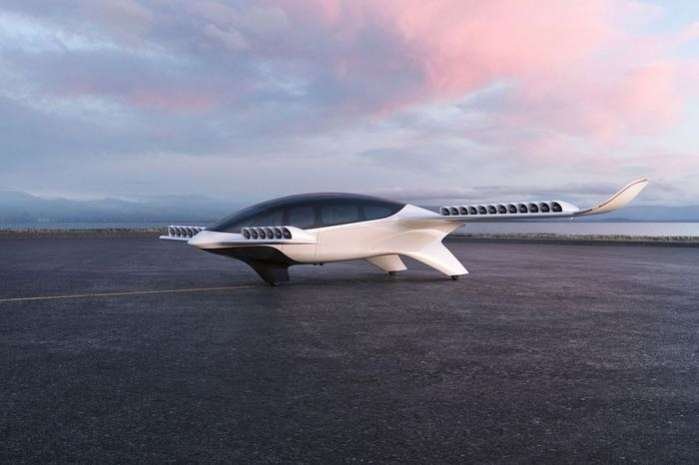Germany’s Lilium will be the latest electric aviation startup to go public via a reverse merger with a special acquisition company, or SPAC. Lilium will merge with Qell Acquisition, a SPAC founded by former General Motors executive Barry Engle. The newly formed company will list on Nasdaq under the ticker symbol “LILM.”
As part of the announcement, Lilium unveiled a new, seven-seat electric aircraft that it says will launch as part of an inter-city flying taxi service in 2025. Previously, the company’s prototype was said to have only five seats — so we can assume that Lilium’s ambitions to ferry more passengers are growing along with its financial expectations.
It’s the latest deal involving an electric vertical takeoff and landing (eVTOL) startup after the SPAC deals of Archer and Joby Aviation. A SPAC is a blank-check corporation, formed as an alternative to an IPO, because it raises funds for an operation that doesn’t have revenue of its own. There have been a rash of SPAC deals involving companies in the transportation space, including electric cars, autonomous vehicles, and micromobility.
Lilium’s SPAC deal values the combined company at a pro forma enterprise value of $2.4 billion and an approximately $3.3 billion pro forma equity value. After the merger is finalized, Lilium is expected to receive approximately $830 million from the deal, including $450 million from a fully committed common stock PIPE offering and $380 million cash held in trust. The deal is expected to close in the second quarter of 2021, at which point the company will start trading on the Nasdaq exchange.
Engle, a longtime executive vice president and president of GM’s North America division, will join the board of the newly formed company, as well as former Airbus CEO Tom Enders. Engle described Lilium’s product as “a highly engineered aircraft.”
The type of aircraft Lilium is developing is typically called a “flying car,” electric-powered, able to carry only a handful of passengers, and intended for short flights within a city or regionally. These types of vehicles are still in their prototype phase and have yet to be rolled out for commercial service.
The company completed the first phase of testing of its five-seater 36-rotor electric prototype in October 2019, with the aircraft hitting speeds of 100km/h (62mph). Lilium says it remains “on track” to launch passenger operations in several locations around the world by 2025.
The new seven-seater jet has a projected cruise speed of 175mph at 10,000 feet and a range of 155 miles. That’s slower and less range than the company’s projections for its five-seater jet, which Lilium said would have a top speed of 186mph and a range of 186miles. Still, the company says it is the “culmination of five years of technology development across four generations of technology demonstrators, including Lilium’s full-scale 5-Seater.”
Lilium applied for certification with the US Federal Aviation Administration in 2018, which typically can take several years to complete. The company has also applied with Europe’s EASA for certification.
Of course, many companies — Lilium included — have promised revolutionary new aircraft for years, only to miss deadlines or fail to live up to past promises. Kitty Hawk, the flying car venture backed by Google co-founder Larry Page, had to reorganize amid reports about breakdowns, battery fires, and returned deposits. Another startup, Zunum, is locked in a bitter legal fight with its former investor, Boeing. And last year, Germany’s Lilium Jet had a prototype catch fire.
This content was originally published here.



